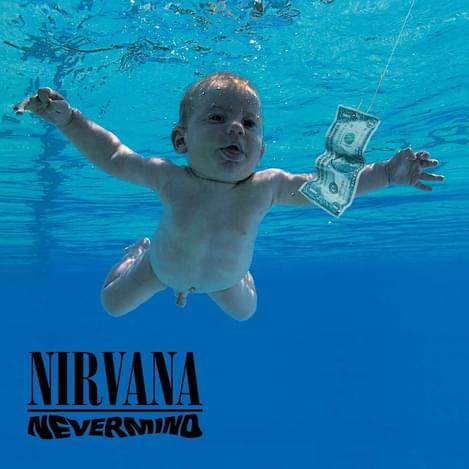Nevermind's 30th Anniversary captures Nirvana's timeless and chaotic energy
"Nevermind 30th Anniversery Edition"

Of course, 30 years have passed since the record’s initial release, and its influence, both musical and on a wider cultural scale, are impossible to ignore. Upon release however, it wasn’t without its detractors. Grunge and punk purists hated the fact it was released on a major label, the edge of its predecessor lost to studio polish. While the likes of Rolling Stone offered middling reviews, blissfully unaware that what they had just overlooked was about to define a generation.
Combining the blistering punk of their debut with distinctly more radio-friendly production, all the while embodying the same nihilistic zeitgeist harboured by Generation Z, by January 1992 Nevermind had overtaken Michael Jackson’s Dangerous at the top of the US album charts. And while at this point no-one could argue against the fact it was certainly a timely record, the seeds were already sown for it to become timeless.
With such a reputation however, the chances are this is a record that you already own. And as with most seminal albums, it’s also a record that’s had the remaster and rerelease treatment several times over. As a result, is it really worth putting your hand in your pocket once again for an album you already have at least one copy of?
That depends entirely on how much you love the band.
Firstly, going off the remastered 12 tracks that appeared on the original album, I would say it’s entirely worth it. While Nevermind was certainly a record that changed my outlook on what alternative music could sound like, it’s probably been ten or so years since I listened to the record in full. Hearing it again this time was almost like hearing it again for the first time.
That doesn’t mean to say it had the same emotional impact as that first time, and nor did it bring about a similar seismic realisation that alternative music wasn’t all Limp Bizkit and Papa Roach. What it did do however, was remind me just how good of an album it is, and why 30 years later people are still talking about it.
Does the remaster treatment benefit the record, however? Surprisingly, yes. Kurt Cobain was never happy with the record’s original mastering. Despite its production being much poppier than its predecessor, it was still a dark, muddy and often claustrophobic record. To clean it up too much would be to take away from the essence of the album. Instead, what the remastering does do, is elevate elements within the mix. The bass at the beginning of "Lounge Act" for instance, or those chunky bar chords that open "…Teen Spirit".
Whether this is noticeable enough to make it worth buying for the majority is questionable, but it certainly benefits the record overall, it’s just whether it’s in a way that matters to anyone but the staunchest of audiophiles.
Thankfully however, there’s plenty more on offer across the release package also, most notably the inclusion of four complete live shows that showcase the band during their mainstream breakthrough; Live in Amsterdam, Netherlands; Live in Del Mar, California; Live in Melbourne, Australia for triple j and Live in Tokyo, Japan.
Just how much value these offer depends not just on how big a Nirvana fan you actually are, but also on your opinion of recorded live shows. There are earlier tracks on offer here in their live iterations with the likes of "About A Girl", "Sliver" and "Aneurysm" all making multiple appearances across the recordings, but it’s doubtful that there’s any tracks on offer here that even fair-weather fans haven’t heard before, although it is interesting to see the tracks in their live iterations, especially for those of us who never had the chance.
Interesting doesn’t always mean good however, at least as far as …Amsterdam and …Del Mar go. The scrappiness of the recordings and the hit and miss nature of Cobain’s voice, not to mention the speed in which tracks are played all make for a disconcerting listen. Of course, live music isn’t meant to mirror its recorded counterpart but only once the date of the concerts in question is post-Nevermind do they begin to feel worthwhile, with Japan arguably being the best of the four.
Though completionists will for sure find plenty to love here, with 76 tracks on offer it’s easy to feel overwhelmed at the sheer scale of the release, and it’s absolutely not something one would listen to in its entirety given it’s 280-minute run time. As such, it’s an anniversary album released with purists, collectors, and die-hard Nirvana fans in mind, and it’s only those that will appreciate the additional content that comes with it.
If you’re looking to add Nevermind to your collection however, you could do much worse than picking up the remastered edition, just swerve the live albums, for your own sanity.
Get the Best Fit take on the week in music direct to your inbox every Friday

Prima Queen
The Prize

Femi Kuti
Journey Through Life

Sunflower Bean
Mortal Primetime





